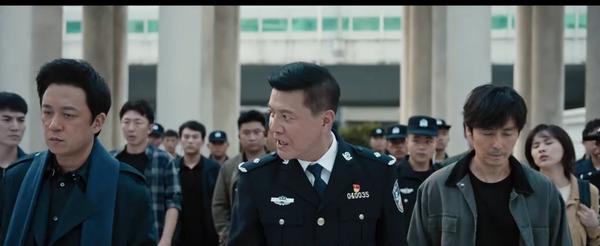The Decline of 'Breaking Dawn' - A Deep Dive into Its Fourth Case
The fourth case of the Chinese crime drama ‘Breaking Dawn’ faces criticism for its illogical plot development, inconsistent character behaviors, and unrealistic police procedures, marking a significant drop in quality from previous cases.

The latest installment of “Breaking Dawn” presents a case involving filial revenge that has sparked intense discussion among viewers. The story follows Zhou Zibo, who seeks vengeance after suspecting his brother-in-law’s involvement in his mother’s death. However, the execution of this potentially compelling narrative has left many viewers disappointed.
The plot’s credibility issues begin with the fundamental premise. In 2017 China, where surveillance cameras are ubiquitous, an escaped prisoner wearing prison uniform manages to freely move between train stations, banks, and court buildings without being apprehended. This stretches believability beyond reasonable limits.
Character behaviors throughout the episode defy logic. The professional assassin, nicknamed “Baby Face,” demonstrates inconsistent capabilities - sometimes displaying remarkable skill, other times making amateur mistakes. The police force’s actions are equally problematic, with officers making decisions that contradict basic law enforcement protocols.
The portrayal of the forensic expert presents another significant issue. The character’s rapid career progression from university student to deputy chief forensic expert in just two years raises questions about the writers' understanding of professional development in law enforcement.
The narrative structure itself shows signs of deterioration. Unlike previous cases that maintained tension and coherence, this episode meanders through seemingly pointless scenes and contrived situations. The confrontation between the forensic expert and the escaped prisoner under a tree exemplifies the script’s departure from realistic police procedure.
Most concerning is how the case appears to prioritize dramatic effect over logical consistency. The brother-in-law’s suspicious behavior - showing excessive care for his wife immediately after police questioning and purchasing large insurance policies - feels like obvious foreshadowing rather than subtle character development.
These issues reflect a broader decline in the show’s quality. What started as a promising crime drama has increasingly sacrificed credibility for sensationalism. The investigation procedures lack authenticity, character motivations become increasingly unclear, and plot resolutions rely more on convenience than clever detective work.
The show’s treatment of police work particularly undermines its credibility. Senior officers make decisions that would be unthinkable in real law enforcement, while surveillance footage and standard police protocols seem to exist only when convenient for the plot.
This decline in quality appears systematic rather than incidental. Each new case demonstrates less attention to detail and plausibility than its predecessor, suggesting fundamental issues with the show’s creative direction.